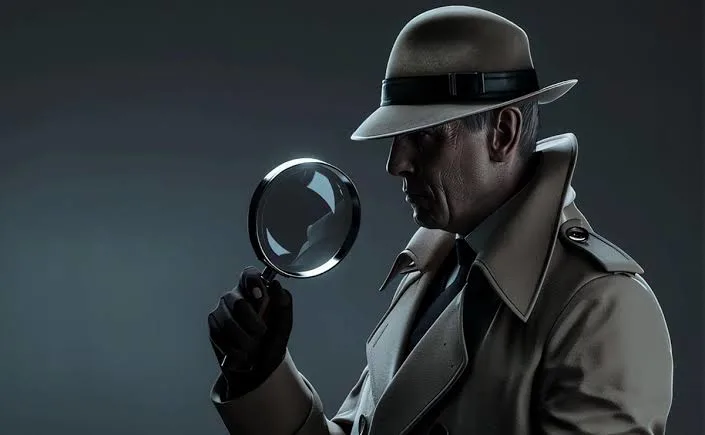Infidelity is one of the most painful experiences in a relationship. Whether you’re dealing with a romantic partner, spouse, or someone close to you, discovering that you’ve been betrayed can be emotionally devastating. While many may feel the urge to expose a cheater, it’s important to consider the best way to confront the situation carefully. Is exposing a cheater the right move? Let’s explore the ways you can approach this difficult situation, weigh the potential outcomes, and ask whether it’s worth it.

The Need to Expose a Cheater:
Exposing a cheater can feel like an empowering way to regain control or seek justice, but it’s essential to approach the situation carefully. While confronting them or exposing their actions publicly might seem like a solution, it can often lead to unintended consequences. Public confrontations can escalate tensions, and emotional manipulation or gaslighting may follow.
Revenge-driven actions might make it harder for you to heal. In this article, we’ll explore various ways to uncover infidelity—whether through digital tools, private investigations, or even counseling. We will also examine the psychological dynamics and the emotional toll this process can take, helping you decide if exposing the cheater is truly the best course of action for you.
9 Effective Ways to Expose a Cheater:
1. Gather Evidence Through Observation:
Before confronting a cheater, gathering solid evidence is crucial. Tracking their behavior over time and noting any inconsistencies can help you build your case. For example, you can observe changes in their routine, unusual spending habits, or changes in their communication patterns. If you share joint accounts or possessions, checking their transactions or using a GPS tracker could provide insights into their activities.
2. Use Third-Party Tools for Verification:
If you suspect online infidelity, utilizing third-party tools or apps can be a discreet way to gather evidence without direct confrontation. These tools can help you check if your partner has any hidden profiles on dating apps or websites. By entering their name, phone number, or even a selfie, you can verify if they are active on platforms like Tinder or Bumble.
3. Create a Burner Email or Social Media Account:
If your partner is careful with their phone or accounts, you might need to get creative. Setting up a fake account on social media or dating apps and interacting with them might lead to them revealing their true behavior. However, be cautious to avoid situations that could be easily debunked, such as live video calls.
4. Contact the Other Person Involved:
In some cases, reaching out to the person your partner has cheated with can be effective. If they aren’t aware of the full picture, they might be willing to help expose the truth. However, it’s important to evaluate their intentions carefully—some might act maliciously, potentially putting you in a more complicated position.
5. Send an Anonymous Letter:
If you prefer to keep your involvement secret, consider sending an anonymous letter with evidence of their betrayal. This method can work well if you have proof like photos, text messages, or other documents, and can also serve as a warning to your partner about the consequences of their actions.
6. Join Facebook Groups Like “Are We Dating the Same Person?”
Private Facebook groups dedicated to exposing cheaters, such as “Are We Dating the Same Person?” can be an avenue for revealing the truth. By posting a photo or description of the cheater, you might discover that others are dealing with the same person. These groups can provide valuable support and validation.
7. Hire a Private Investigator:

Sometimes, the best course of action is to hire a professional. A private investigator can discreetly gather evidence and help confirm whether your suspicions are accurate. They have the skills and tools to uncover details that might be otherwise difficult to access.
8. Take a Screenshot of Their Browsing History:
If you have access to your partner’s device, browsing their history can uncover evidence of infidelity. Websites visited, passwords stored, and autofill information can give you insights into their online activities. Just be aware that they may accuse you of invading their privacy.
9. Seek the Help of a Counselor:
Couples therapy can serve as an unconventional but effective way to confront cheating. A trained counselor can guide both partners through difficult conversations and help uncover hidden truths. This approach ensures that the situation is dealt with in a calm and professional manner.
What to Consider Before Exposing a Cheater
Exposing a cheater can have significant emotional and relational consequences. It’s important to carefully think through your options and be prepared for potential fallout. Below are several key considerations to help guide your decision-making process:-
1. Expect Denial and Gaslighting:
Even with irrefutable proof, a cheater will often deny their actions and attempt to manipulate the situation. Be prepared for these reactions:
- Deflection: They may try to shift the blame onto you or someone else.
- Emotional Manipulation: Expect them to make you feel guilty or responsible for their behavior.
- Aggressive Denials: They might vehemently deny the facts and accuse you of misunderstanding or overreacting.
- Blame Shifting: They may accuse you of causing the problem, distracting from their own wrongdoings.
- Gaslighting: They could attempt to convince you that you’re imagining things or misremembering key details.
2. Avoid Public Confrontations:
Publicly confronting a cheater can seem tempting, but it may lead to further complications. Here’s why:
- Escalation of Tension: Public settings can escalate the situation, making it harder to have a constructive conversation.
- Emotional Chaos: Public exposure may provoke an emotional response, clouding the core issue of infidelity.
- Damage to Your Reputation: You risk becoming the subject of gossip or negative judgment, especially if the cheater turns the story around.
3. Define Your Goal:
Before exposing a cheater, consider your true intentions. Understanding your motivations will help you make the right decision:
- Seeking Revenge: Is your goal to make them feel the pain they caused you, or is it to move on peacefully?
- Justice: Do you want to hold them accountable, and if so, how can you do that without causing more harm to yourself?
- Moving On: Is your main goal simply to end the relationship and free yourself from the pain?
4. Beware of Leaking Private Information:
While it may be tempting to leak private messages or images to expose the cheater, this can have long-lasting consequences:
- Risk of Misinterpretation: Once shared, the information can be misinterpreted or distorted, leading to misunderstandings.
- Loss of Privacy: Your private matters will no longer be private, leaving you vulnerable to judgment or ridicule.
- Defamation Risk: Exposing their actions could cause a backlash that harms both you and the cheater’s reputation.
- Empathy Loss: If you share private information publicly, others may perceive you as vindictive, weakening your position.
5. Understand the Legal Implications:
In some cases, exposing a cheater can have legal consequences. It’s important to be aware of potential risks:
- Defamation Lawsuits: If you spread false information, you could be liable for defamation, potentially facing legal action.
- Privacy Violations: Sharing private conversations or photos without consent may breach privacy laws, especially if they involve intimate content.
- Social Media Risks: Posting damaging information online can escalate the situation, attracting unwanted attention or legal ramifications.
- Revenge Porn Laws: If the cheating involves intimate images or videos, posting them without consent could lead to criminal charges under revenge porn laws.
- Legal Counsel: Before taking action, consulting with a lawyer could help you understand the legal risks involved and ensure you’re making informed decisions.
Is It Worth Exposing a Cheater?
Deciding whether it’s worth exposing a cheater depends largely on your specific situation and what you hope to achieve. If you’re in an abusive or toxic relationship, exposing the cheater’s actions might be necessary, especially if you feel it’s vital to protect yourself or others. For example, if you want to end the relationship and move on, confronting the cheater or making their infidelity known might bring closure. However, if you’re seeking justice or revenge, it’s important to evaluate whether exposing them will genuinely lead to the resolution you desire or if it will create more chaos.
Exposing a cheater can be emotionally draining, and while it may feel satisfying in the short term, it could lead to further emotional turmoil or manipulation. It’s crucial to gather solid evidence before taking any action. Without proof, confronting them directly might lead to denial or gaslighting. Moreover, public exposure can create unnecessary drama and may backfire if the situation spirals out of control.
In some cases, it might be wiser to focus on your own healing, seeking support from friends, family, or a therapist. Taking time to process the betrayal will help you make more informed decisions, ultimately leading to personal growth and peace.
Conclusion:
Exposing a cheater is a highly charged and emotional process that can have lasting effects on both parties involved. While gathering evidence and confronting the cheater may seem like the right course of action, it’s important to approach the situation thoughtfully. Seeking guidance from professionals, such as counselors or legal experts, will help you make informed decisions and handle the aftermath responsibly
Focus on your healing and long-term well-being, as revenge or retaliation may ultimately cause more harm than good. Moving forward with care, emotional support, and professional advice will empower you to make decisions that promote your growth and peace of mind.
FAQs:
Start by gathering evidence and observing their behavior. If you’re comfortable, consider having an open conversation or seek professional help from a counselor.
No. Public confrontations can escalate the situation and make it harder to achieve closure. It’s better to handle things privately.
Seek support from friends, family, or a therapist. Focus on self-care and take the time you need to heal.
You can use tools like private investigators, social media checks, or anonymous letters to gather evidence without direct confrontation.
Yes, a private investigator can help gather evidence and provide you with a clearer picture of the situation.
